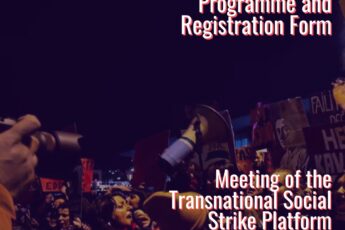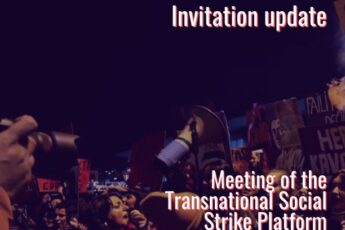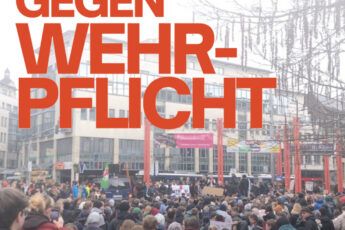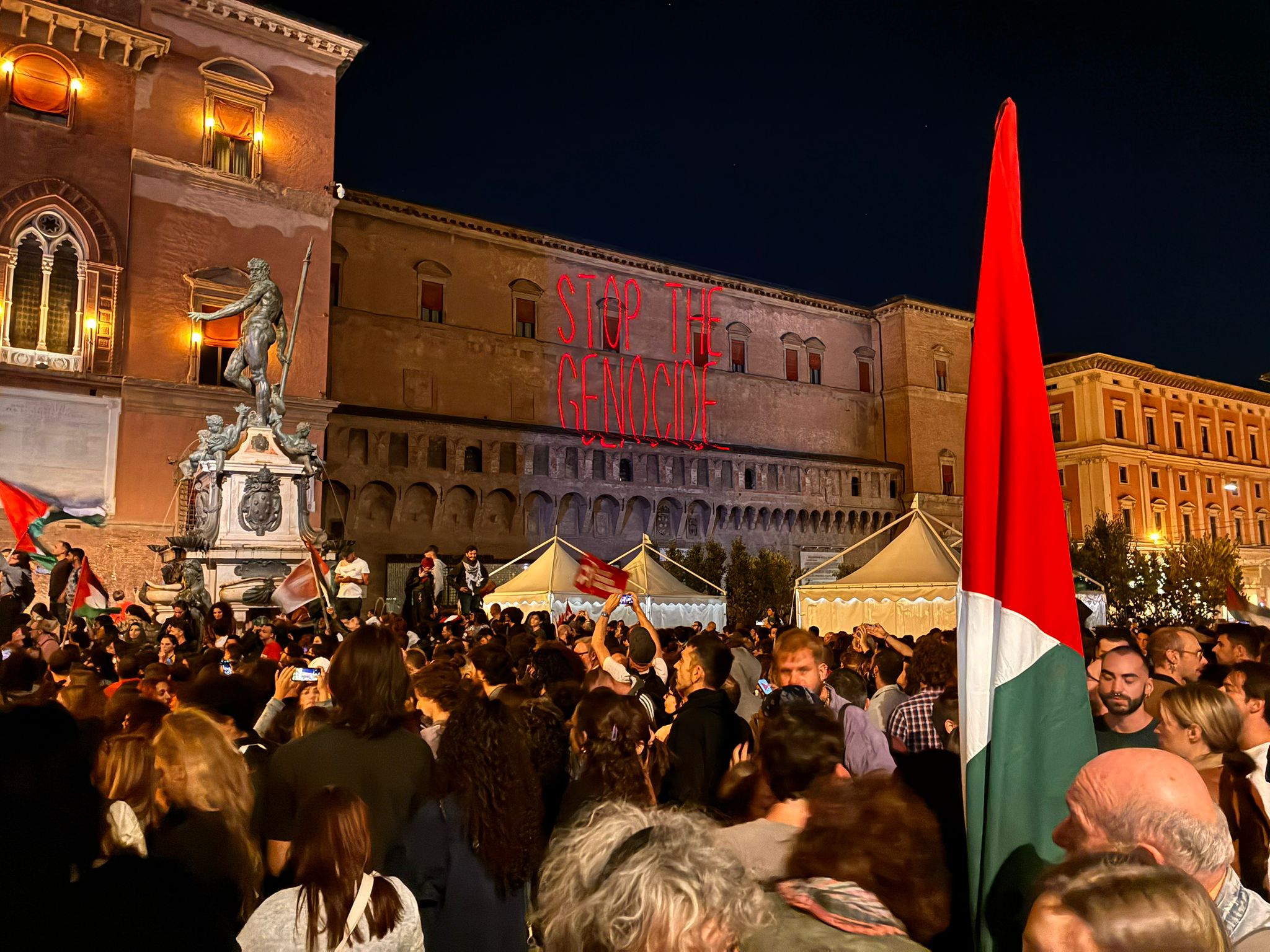
By Hêlîn Dirik and Annalisa Cananzi
We are publishing the full English version of our conversation with Hêlîn Dirik, originally published in the German newspaper A&K, discussing strikes and mobilizations in Italy, the ongoing organizing against the war, and how recent mobilizations in and beyond Italy could ignite the spark for a Europe-wide strike movement against war and genocide.
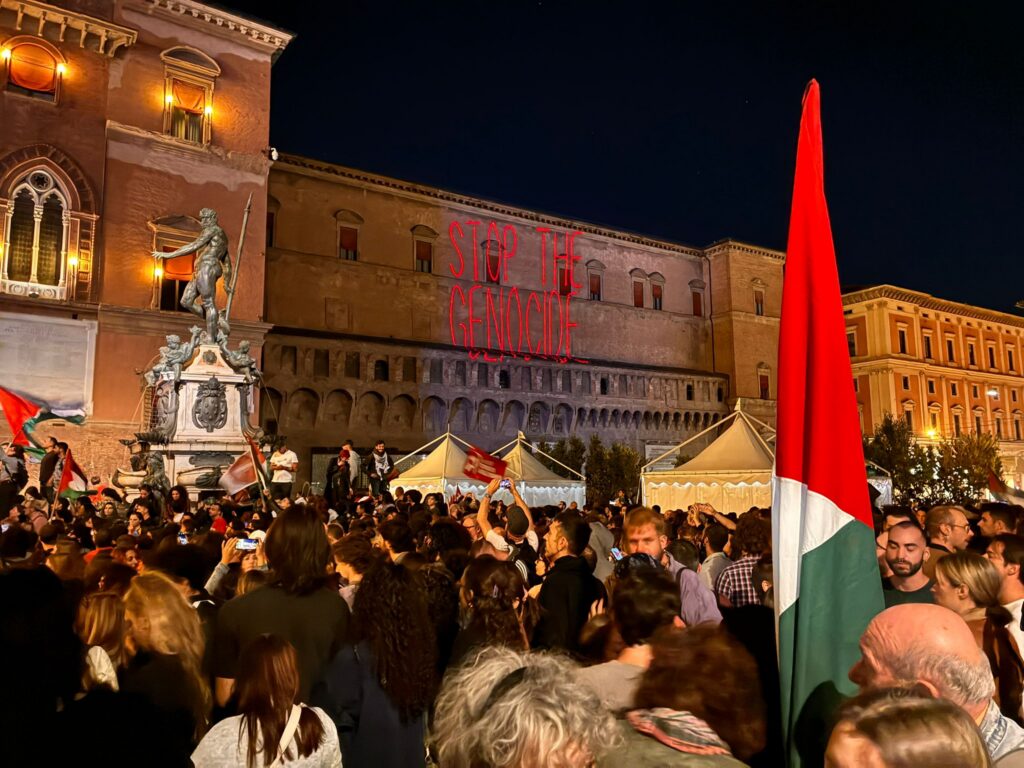
1) There were two general strikes in Italy within 2 weeks. As we speak, the second is happening following Israel’s attacks on the Global Sumud Flotilla. How did the strikes come about, how were they organized, and how were so many people mobilized? How did the Italian public react to the strikes?
The strikes of the past two weeks marked a turning point, bringing to the surface a wave of mobilization against the war that, until just a few weeks ago, had never appeared with such strength and unity. In this context, the Global Sumud Flotilla has played a key role, raising the level of attention and mobilization: we saw the first signs three weeks ago in Genoa—when thousands of people went to the port to deliver essential goods to ships leaving for Gaza and to protest against the genocide—but at the national level, the strike on the 22nd made clear that something new was happening. That strike showed that hundreds of thousands of people were no longer willing to watch silently the genocide in Gaza and the pervasiveness of war and its consequences. No longer can the lives of people be sacrificed so that capital, in the ‘Gaza Riviera’ or elsewhere, can thrive. When the dockworkers of Genoa declared that if the Flotilla were blocked, they would block Italy, the slogan spread immediately and gained wide resonance and attention. On Wednesday, October 1st, upon hearing news of the attack on the Sumud Flotilla, rallies and marches were organized across the country within an hour. On Friday, the unions called a general strike that received massive support, with two million people taking to the streets in more than eighty Italian cities. Even though the night before the strike had been declared illegal due to a lack of prior notice, participation still reached 60%. Schools, universities, factories (especially in the metal sector), public transportation, offices, and even some shops closed; even in some hospitals, activities were reduced to essential services, while tens of thousands of people took to the streets, blocking train stations, highways, and ports. Many people who couldn’t strike supported the mobilization, showing solidarity. After two days of mobilization, yesterday (Saturday, 4 October), at least one million people gathered in Rome for a national demonstration. The participation was huge and heterogeneous; many were attending a protest for the first time, or had never joined such a big demonstration. After months of limited mobilization and activation, these past weeks revealed a sense of urgency and determination, showing that people are no longer willing to look at this massacre and its brutal consequences while pretending nothing is happening.
2) What were the main demands and perspectives of the strike? Which movements are involved?
The second general strike (October 3) was called through a joint action between the grassroots unions and Italy’s largest confederal trade union, which came under pressure from its own members to call the strike. What is significant is that, for the first time in a long while, these mobilizations were pervasive and went far beyond union structures or organized collectives: thousands of people recognized in the strike a tool for exerting pressure, making an impact, and building collective strength. It happened in several sectors and groups of mobilization: for example, many teachers organized together, and hundreds of doctors and healthcare workers held sit-ins outside hospitals.
Workers, students, migrants, women, and LGBTQ people who took to the streets are first and foremost demanding an end to the genocide in Gaza and to the occupation policies in the West Bank, as well as an end to the involvement of European governments, their support for the Israeli government, and the shipment of weapons. At the same time, we can see that the refusal expressed by the strike and the demonstrations was not only about that. It has been also a refusal to accept what we have called the Third World War—namely, the militarist policies that since the beginning of the war in Ukraine are keeping more and more space; the conditions of exploitation, patriarchy, and racism fueled by the war; the constant demand for sacrifice and the logic of “there is no alternative” repeated in these days by the European institutions. The strike challenged the authoritarian policies of the Meloni government, which tried to boycott the strike. Still, despite the ‘Strike Guarantee Commission’ declaring the strike illegitimate, hundreds of thousands of workers refused to go to work, and despite the new “Security decree” (targeting migrants, prisoners, and political protests) criminalizes blocking roads and railways, thousands of protesters occupied highways and train stations. Last week, we saw the first big political mobilisations against the neoliberal and conservative Meloni agenda, made of militarism and discipline, patriarchal policies attacking women and LGBTQ people, the tightening of labor conditions, the cutbacks on welfare, schools, universities, and the cultural sector.
3) What triggered this strike was Israel’s latest attack on participants of the Global Sumud Flotilla. Would you say the mobilization was rather something “punctual” or can it become something bigger and more continuous?
We believe this has been the moment of intensification for an anti-war and anti-genocide movement that, in a less organized form, already existed within society, and which now needs to be rooted and sustained. It is necessary to keep taking to the streets, but also to organize spaces for discussion and organization that can ensure continuity for the movement against the war. For this reason, next Saturday 11th of October, in Bologna, there will be a national meeting called “Reset Against the War”, which, starting from the recent strikes, will address how the war affects our lives and struggles, how to build a persistent struggle against it, and how to think collectively about the next steps. In front of the great mobilization that took place in Italy and elsewhere, it is more important than ever to speak about war even when it seems difficult or divisive, whether it concerns Gaza or Ukraine, going beyond fronts and positions aligned with geopolitics and nationalism. From this point of view, rearm is an important issue to face; however, this does not concern only the shipment of weapons, but also the way this impact the political and material conditions of workers, women and lgbtq+ people, and migrants, and consequently our possibilities of struggle against war, neoliberal capitalism, patriarchal and racist violence, and for climate justice. In addition, what has made these mobilizations so significant is their transnational dimension: last Saturday’s massive demonstration in Berlin, and the rallies that took place this past weekend from Amsterdam to Barcelona, from Tunis to Mexico. The strike is on the move across and beyond Europe, taking different forms and rhythms in each country, as shown by the strikes that have taken place in recent weeks and months in France and Greece, and by the mobilizations that have linked the refusal of war and militarism with the struggles against its conditions, such as attacks on pensions and wages, the rise of patriarchal violence, and the worsening of working conditions.
From within this movement, we now need more than ever to consolidate channels of communication and mobilization across unions and collectives, both nationally and transnationally. The prospect of a European social strike movement is something we must actively build to bring an end to this genocide and this war, and to the exploitative, patriarchal, and racist policies that have caused and sustain them. This means, of course, to look for commonalities, but most of all to grasp and discuss how different conditions impact different subjects on the transnational level. These very differences are essential for the valorization of capital, and that’s why it is necessary to face them to build connections and power from a class perspective.
For this purpose, we are active within the Transnational Social Strike Platform with many other collectives from Europe and beyond: among them is the Interventionistische Linke, with whom we have organized several moments of discussion during the past year, also in Germany. Together with them and the Polish union Workers’ Initiative, we participated in the Rheinmetall-Entwaffnen-Camp in Cologne last August, where we organized a workshop called “Organising Transnationally Against the War”. This aimed at exploring ways to build a transnational politics of peace that actively rejects nationalism, campism, and the prevailing war-driven geopolitical logic, while discussing the first step towards a wider assembly on how to organise transnationally within Europe at war.


